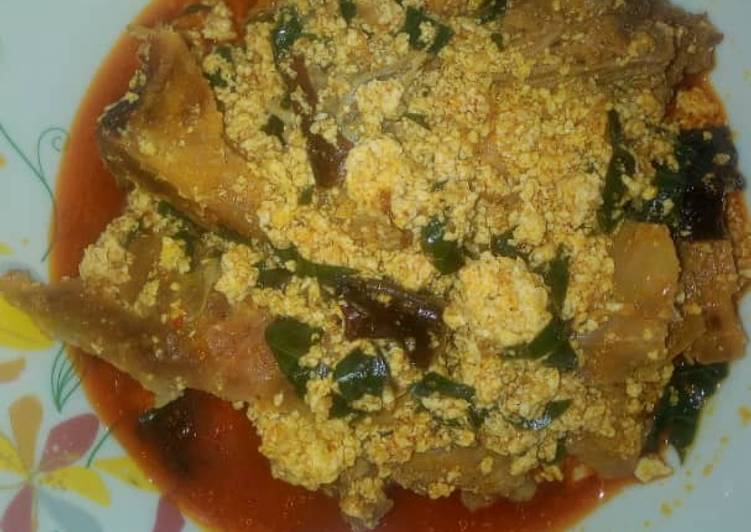Egusi soup. It is a great soup for those who like to try something different every once in a while. Ground Egusi seeds give this soup a unique color and flavor. If you can't find Egusi seeds, you can substitute pumpkin seeds.
 Nigerian Egusi Soup (Caking Method) [Video] Egusi and Ogbono Soup Combo How to cook egusi soup in simple steps Add ground melon to a bowl, add about a cup of water and mix to form a paste then set aside.
Wash and chop the spinach, drain in a colander and set aside.
Ground egusi (or pumpkin seeds) is the main ingredient.
You can have Egusi soup using 7 ingredients and 2 steps. Here is how you cook it.
Nigerian Egusi Soup (Caking Method) [Video] Egusi and Ogbono Soup Combo How to cook egusi soup in simple steps Add ground melon to a bowl, add about a cup of water and mix to form a paste then set aside.
Wash and chop the spinach, drain in a colander and set aside.
Ground egusi (or pumpkin seeds) is the main ingredient.
You can have Egusi soup using 7 ingredients and 2 steps. Here is how you cook it.
Ingredients of Egusi soup
- You need 1 of medium sized Stockfish.
- You need 2 cups of Egusi.
- You need 1 cup of Palmoil.
- Prepare of Salt.
- You need 3 cubes of Seasoning.
- Prepare 1/4 cup of Crayfish.
- Prepare 4 of Pepper.
Other ingredients include red palm oil, African crayfish, meats and fish, seasoning, hot pepper and some form of leafy greens. Nigerian Egusi Soup is made thick using ground melon seeds and leafy vegetables. It is one of the most popular soups prepared by many Nigerian tribes. The people eat it with dishes like Pounded Yam.
Egusi soup instructions
- Season the stockfish with salt and onion boil to be tender.pour in water and palmoil and cover and boil for sometime then blend in the egusi..
- Onces the egusi is boiling very well add crayfish,pepper,salt after 10minutes add seasoning stir and allow to boil a bit.chop the vegetable rinse and pour in the soup stir and dont over cook the vegetable..
You can prepare egusi soup with goat, beef, fish, or shellfish! Egusi soup is unarguably the most popular Nigerian soup. In my few years as a food blogger and Nigerian food lover, I have learned that different recipes exist across different Nigerian ethnic groups. The Yorubas make efo elegusi while the Igbos make ofe egusi, all with similar ingredients but with slightly different approaches. Egusi is a West African name for the seeds of plants like squash, melons, and gourds that, when dried and ground become a staple ingredient in many West African dishes.